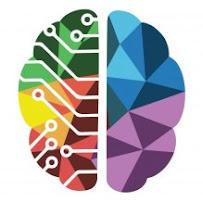
This Notice of Special Interest (NOSI) has been issued to facilitate integration of neuroethics perspectives in BRAIN-funded research on humans.
The National Institutes of Health (NIH) BRAIN Initiative was announced in 2013 with the goal of revolutionizing our understanding of the human brain by supporting the development of cutting edge neurotechnologies to study the brain. The development of such tools comes with an immense responsibility to identify and navigate ethical considerations for research on humans. The NIH BRAIN Initiative Neuroethics Program uses a multi-part strategy to achieve proactive, ongoing assessment and management of the neuroethical implications of the development and application of BRAIN-funded tools and neurotechnologies.
In addition to funding NIH research in neuroethics through an R01 funding opportunity, this Notice of Special Interest (NOSI; NOT-MH-22-040) aims to facilitate embedding ethicists into currently funded BRAIN research projects. Applicants can request up to a year of support within the scope of the original aims of the grant. Examples of relevant activities broadly encompass ethical considerations around research participant engagement, social implications, and special populations as well as ethical imperatives for data collection, storage and sharing. Some examples of relevant activities include, but are not limited to:
-
The ethical implications of access to and use of emerging neurotechnologies and their relationship to informed consent
-
Stakeholder perspectives about monitoring or modulating brain function for purposes of improving our understanding of human brain function and/or reducing illness and disability due to brain diseases and disorders
-
Considerations of cultural differences, treatment/access barriers, and efforts to enhance inclusion in BRAIN Initiative research
-
Research regarding long-term obligations to patient populations involved with BRAIN Initiative novel neurotechnology
-
Studies that empirically consider different perspectives on the distinction between invasive versus non-invasive brain imaging and/or neuromodulation; particularly as those views are similar or different between groups such as participants, researchers, physicians, families, and the broader public view
-
Ethical issues associated with predictive/diagnostic research related to brain disorders
-
Studies that probe the ethical implications/considerations of both collecting large volumes of brain data and the sharing of such for broader scientific purposes
-
Studies that explore the evolving richness of collected human neural data and considerations such as data ownership, access, de-identification and re-use practices, privacy, and unintended uses
-
Ethical issues unique to research that leverages opportunities with human brain tissue
To apply for a neuroethics supplement, please submit requests through the funding opportunity PA-20-272. Applications are due on April 01, 2022.
The need for neuroethical considerations in scientific research
Ethics are an inherent responsibility of biomedical research, and ethical considerations can evolve with advances in research. Rapid advances in tools and technologies to study the human brain have raised special ethical considerations that can help to guide neuroscience research and the application of those research findings.
The need for ethical considerations in neuroscience research has been a core component of the BRAIN Initiative since its inception. The formation of the NIH BRAIN Initiative Neuroethics Working Group in 2015 emphasized the BRAIN Initiative’s commitment to ethical considerations as an integral part of neuroscience research. In FY2017, NIH began dedicating funding for neuroethics research, in addition to administrative supplement opportunities. As part of a strategic planning effort to take stock of BRAIN progress to inform future opportunities, the Advisory Council to the Director Working Group on BRAIN 2.0 Neuroethics Subgroup identified several broad areas for BRAIN to consider. These areas included but were not limited to: enhancing the integration of neuroscience and neuroethics; establishing guidelines for the neuroscience data ecosystem; providing additional tools and resources for neuroscientists to recognize neuroethics issues and opportunities for neuroethics research; assessing the development and use of innovative animal and neural-circuit model systems; and initiating conversations and collaborations to address neuroscience applications beyond biomedical and clinical contexts.
As a recent example of a neuroscience-neuroethics partnership, a publication in Neuron from a consortium of BRAIN-funded investigators highlights the ethical considerations guiding intracranial neuroscientific research in humans. This work emerged from discussions within the BRAIN-convened Research Opportunities in Humans (ROH) Consortium, consisting of neuroscientists, neurologists, neurosurgeons and ethicists. These collaborative discussions culminated in an ethical framework for ensuring the integrity of clinical care, and for ensuring voluntariness in intracranial human neuroscience research. Dr. Ashley Feisinger discussed (watch NIH videocast at 20:00) this work at the January 2022 Neuroethics Working Group meeting. Further, a recent story in Science also provided an overview of ethical considerations in human neuroscience research for a broader audience.
More details and updates on the BRAIN Initiative’s Neuroethics program can be found here.
